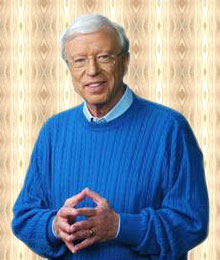My friend John just sent me an article, “Lost in a World Without Courtship,” from the Washington Post that makes the case (often made before) that the lack of a distinct courtship narrative in our present society is dearly costing the present generation in terms of the quality of life.
The author, Michael Gerson, observes that, though puberty and sexual activity is generally coming earlier now than has been the case in the past, the marriage age has continued to creep higher (averaging 28 and 26, for males and females, respectively). And, he argues, this is a bad thing (something I have argued in this space before).
He observes that the past narrative of “dating, engagement, marriage, children” has been nearly entirely abandoned, being replaced by cohabitation as the de facto standard narrative. Of course, virtually every strand of sociological research has shown cohabitation to be detrimental—premarital cohabitation is correlated with significantly higher divorce rates and rates of domestic abuse—and that’s for those couples that actually make it to marriage after cohabiting (the only exception to this is cohabitation by couples already engaged).
Before moving on, I should point out that Gerson does neglect the much older narrative of courtship that excludes “dating” entirely. Modern dating practices are themselves relatively new and represent a departure from the much older courtship narratives that focused less on “finding one’s soulmate” and far more on commitment as the foundation of solid marriages and families—as the old saying goes about arranged marriages: “It’s not that there isn’t love. It’s just that it comes after the marriage.” I would suggest that the move to freer dating practices and a greater focus on finding one’s perfect partner through that experimental and experiential process in the mid 20th Century (something that couldn’t have happened without cars becoming common) is the snowball that started this avalanche. In that sense, the entire narrative of dating in the post-1940s world should be re-examined in terms of its social implications.
Gerson observes that social science research has suggested that the early to mid twenties is the optimal time for a first marriage inasmuch as those first married in that age range are have the lowest rates of divorce, while teen marriages and marriages after 27 (gulp!) do not fare so well.
As for the current norm having of many low-commitment relationships prior to marriage, UVa’s Brad Wilcox explains that a series of “failed” (I’m presuming he means relationships that do not end in marriage) relationships can “poison one’s view of the opposite sex,” in effect training a person for divorce. (To this, I give my hearty agreement—I have often been astonished by parents who encourage their children to “date around,” making sure they date lots of people and have lots of relationships before they get married. It is among the most foolish relationship advice anyone could give his/her children!)
Gerson concludes,
There is little use in preaching against a hurricane of social change. But delaying marriage creates moral, emotional and practical complications. The challenge, as always, is to humanize change. The answer, even in the relational wasteland, is responsibility, commitment and sacrifice for the sake of children.
As I have stated before, the lack of this “sacrifice for the sake of children” is often an issue with the parents of those of marriageable age more than it is with the young people themselves. Either the parents foolishly insist on the youngster pushing marriage to a later age (until finishing college, for example) or they refuse to provide any assistance for the young couple once they get married, though they will help them while they’re single. This “responsibility, commitment and sacrifice” must first be exhibited by the older generation, which, quite frankly, has generally done a terrible job setting up those in my age range or younger for early and successful marriages.



1 Comment. Leave new
This article is a bit old but frankly more timely now than when it was written. I have been reading and re-reading your articles on the topic of marriage, and I think they are among the best, if not the best on this aspect of the subject.